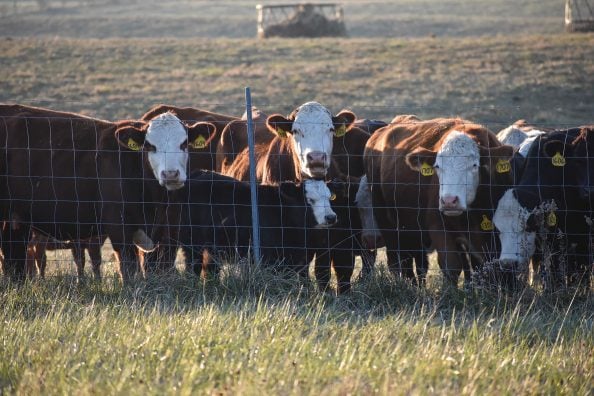Applications for Ohio Farm Bureau Health Plans now available
Members have three ways to apply: contacting a certified agent, calling 833-468-4280 or visiting ohiofarmbureauhealthplans.org.
Read MoreA sense of dread overcame Bill Wickerham as he walked around the corner of the barn. Worried about two newborn calves, he’d left work early to check on them. Lined up on the fence posts were several black vultures watching a calf. After scaring them off by shooting into the air, he went to check on the other calf. The sight was unnerving. At least 20 black vultures were just a few feet from the calf, creeping closer.
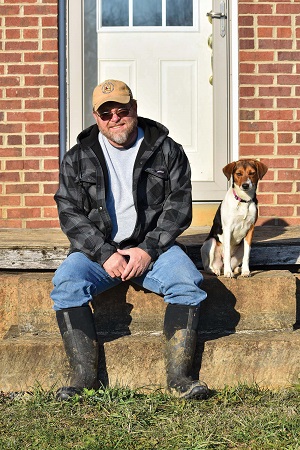
“Had I not intervened, I’m quite confident that I would have lost that calf. Black vultures are a big problem here. Typically they prey on defenseless calves and lambs, killing them,” said Wickerham, an Adams County Farm Bureau member who has a cow-calf operation in southern Ohio, an area that is increasingly seeing more black vultures.
As both a cattleman and wildlife specialist for the local Soil and Water Conservation District, Wickerham knows how big a threat black vultures can be to a livestock producer. Because black vultures are federally protected under the Migratory Bird Treaty Act, farmers aren’t allowed to shoot them without first obtaining a permit from the U.S. Fish and Wildlife Service.
Being told they can’t shoot a bird that’s killing their livestock — their livelihood — without first applying for a permit is a common complaint among area farmers. Most producers feel they should have the right to protect their livestock. Wickerham, who lost twin calves in 2015 after they were attacked by black vultures, understands their frustration. “If this were an endangered species, that would be different, but they are far from endangered,” he said.
Wickerham, who has served as an Adams County Farm Bureau trustee, said he appreciates Farm Bureau’s efforts to find a better way for farmers to protect their livestock from black vultures. Currently, Farm Bureau supports a bill in Congress that would allow livestock farmers to apply for a permit to kill black vultures during calving or lambing season. American Farm Bureau policy supports removing black vultures from the Migratory Bird Treaty Act.
“What I’ve always liked about Farm Bureau is its common sense approach. They try to get everybody at the table and discuss the issues and see what works for everybody,” said Wickerham, who has been a member for about a dozen years. “It’s not all just one side. They’ve done a lot of great things whether it’s line fence laws, water quality, CAUV or whatever.”
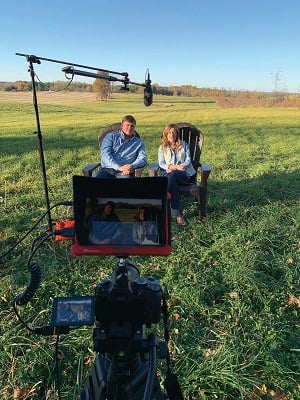
In agreement were Kyle and Ashton Walls, who have served as co-chairs of Ohio Farm Bureau’s Young Agricultural Professionals Committee, which plans educational and social programming for young farmers and agricultural professionals. The Walls, who live in Mount Vernon, raise cattle for competitive rodeo events. Starting a farm from scratch can be challenging, and the couple said they appreciate the education and networking they’ve received through Farm Bureau ever since moving to Ohio and buying 20 acres in 2013.
“Farm Bureau has helped us in an incredible capacity by helping us feel like we’re part of the industry. (Farm Bureau) gave us our place in agriculture,” Kyle said. “The educational side is critical. We are sponges and absorb everything that we possibly can — good or bad.”
Kyle also serves on the board of the Ohio Cattlemen’s Association and is interested in building more synergy between the cattlemen’s and Farm Bureau. “As they continue to work together, it makes both organizations stronger in the end.”
Ohio Farm Bureau at the state and local levels has supported youth programming for the Ohio Cattlemen’s Association, including its Gala Celebration, which raises funds for youth scholarships, and its 20-year-old BEST (Beef Exhibitor Show Total) program, which recognizes Ohio’s junior beef exhibitors.
“Farm Bureau has been a long-time sponsor of the cattle industry’s youth programs and their support is greatly appreciated,” said Elizabeth Harsh, executive director of the Ohio Cattlemen’s Association. “While the cattlemen’s and Farm Bureau are separate and unique in their programming, there’s a lot of overlap on policy issues and working together makes us even more successful.”
One area Ohio Farm Bureau has focused on is Ohio’s meat processing facilities. For years livestock producers have struggled to get their animals harvested and processed in a timely manner. Meat processors complained state regulations were too rigid or inconsistently enforced. Ohio Farm Bureau joined the Ohio Cattlemen’s and Ohio Association of Meat Processors in addressing these concerns. The result? The Ohio Department of Agriculture increased training at meat processing plants to ensure uniform enforcement of rules and reached out to the livestock industry about state and federal regulations. Recently, Ohio Farm Bureau successfully advocated for a 35% increase in state funding for meat inspection. That increase means more meat inspectors in plants and increased processing of livestock, according to Jenna Beadle, director of state policy for Ohio Farm Bureau.
Farm Bureau also is currently advocating on behalf of those who haul livestock long distances. Under a new federal law, drivers are allowed to be on duty for a total of 14 hours consecutively, including 11 hours of drive time. After the drivers reach 11 hours, they must rest and be off duty for 10 consecutive hours.
“Those cattle still have to get to their destination. They can’t sit in a trailer on the side of the road and wait for that truck driver to be able to haul again,” Wickerham said.
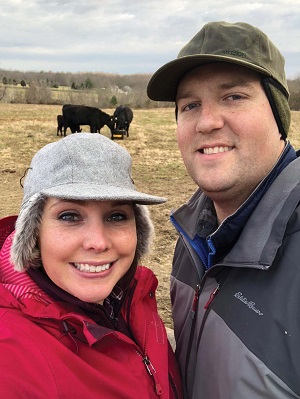
Leadership training has been important to Clermont County Farm Bureau members Josh and Sarah Ison, who market their Angus beef directly to consumers. Both have participated in Ohio Farm Bureau’s AgriPOWER leadership program where they have learned how to be better leaders and advocates for the agricultural industry. Currently, Sarah is in American Farm Bureau’s Partners for Advocacy Leadership program, a high-level training program that prepares participants to represent agriculture in the media, through public speaking, congressional testimony and other advocacy areas.
“We’re talking about trade and how that impacts the cattle industry,” Ison said, explaining that local cattlemen are affected every time international markets open or close for the United States. “Because we’re really small and I’m targeting the domestic market, I need those international markets to be open for the beef industry. I need those big guys to be able to ship their product and have markets outside of the United States.”
Wickerham said the savings and benefits he gets from Farm Bureau is well worth the cost to be a member. He took advantage of a discount offered to Farm Bureau members to rent a no-till drill, which was purchased with the help of an Ohio Farm Bureau Water Quality Grant.
“Farm Bureau has been a great advocate for producers, but also for consumers because ultimately we’re all consumers,” he said.
Excellence in Agriculture winners
Kyle and Ashton Walls’ unique cattle operation will be drawing national attention when the couple competes in American Farm Bureau’s Excellence in Agriculture contest in January. The Knox County couple started a cattle operation from scratch and raise Mexican Corriente cattle for competitive rodeo events. They also raise laying hens for egg production.
The Walls won Ohio Farm Bureau’s Excellence in Agriculture award, qualifying them to compete at the national level. They also received a John Deere Gator courtesy of Farm Credit Mid-America and a $1,000 cash prize sponsored by Nationwide and Ohio Farm Bureau.
Photos by Amy Beth Graves | Additional photos by Jason Meeker


Members have three ways to apply: contacting a certified agent, calling 833-468-4280 or visiting ohiofarmbureauhealthplans.org.
Read More

Farmers, agribusinesses and community members are encouraged to nominate their local fire departments for Nationwide’s Nominate Your Fire Department Contest through April 30.
Read More

Introduced by Sen. Paula Hicks-Hudson, SB 120 would establish the Urban Farmer Youth Initiative Pilot Program.
Read More

Gases, vapors, and fumes can all create risk. How can we measure and protect ourselves from them?
Read More

The Ohio Farm Bureau’s Young Agricultural Professionals State Committee has named its 2026 leadership and the individuals who will be serving on the state committee for 2026-2028.
Read More

The Ohio Farm Bureau Foundation has multiple scholarships available to Ohio students from rural, suburban and urban communities who are pursuing degrees with a connection to the agricultural industry.
Read More

With 100% bonus depreciation now permanent, farmers can deduct the full cost of a new agricultural building in the year it’s placed in service.
Read More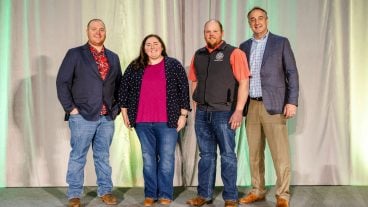
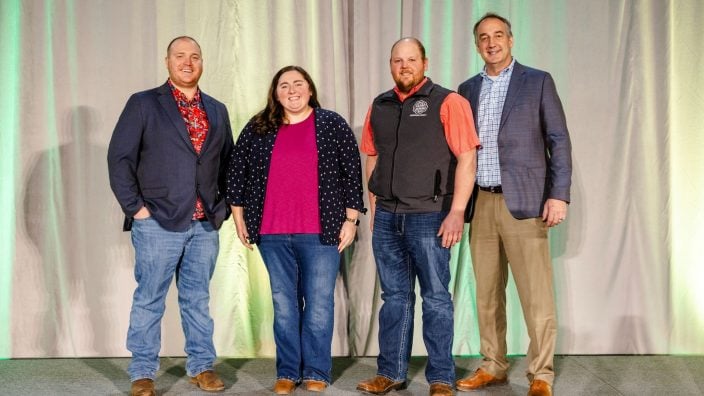
Lincoln Deitrick was named the Outstanding Young Farmer, Denver Davis won the Excellence in Agriculture Award, and Margaret Houts won the Discussion Meet.
Read More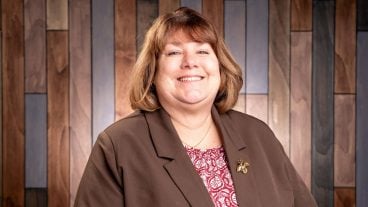
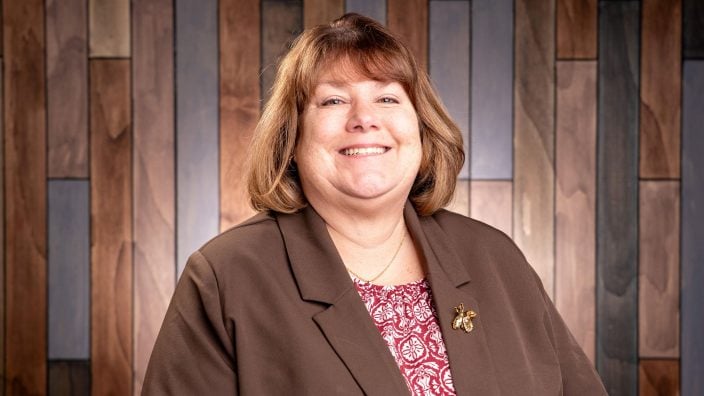
Michelle Downing of Franklin County has been named finance director of county operations for Ohio Farm Bureau.
Read More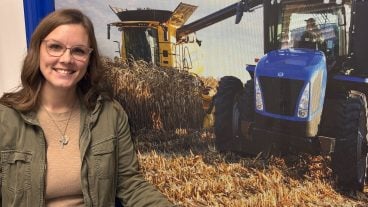
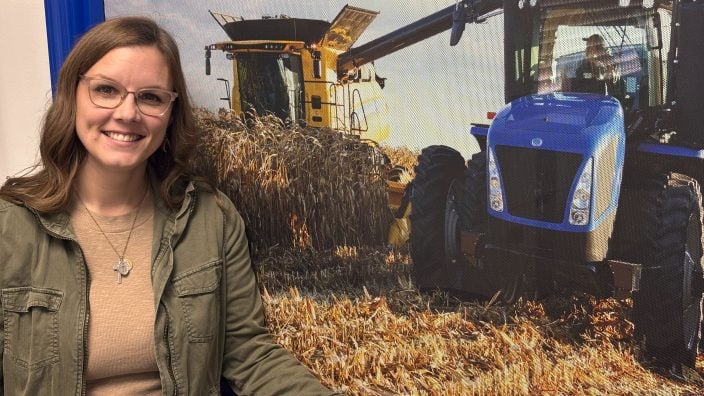
Remember why you joined Farm Bureau and find others that want to join for the same reasons. ~ Alicia Weaver
Read More